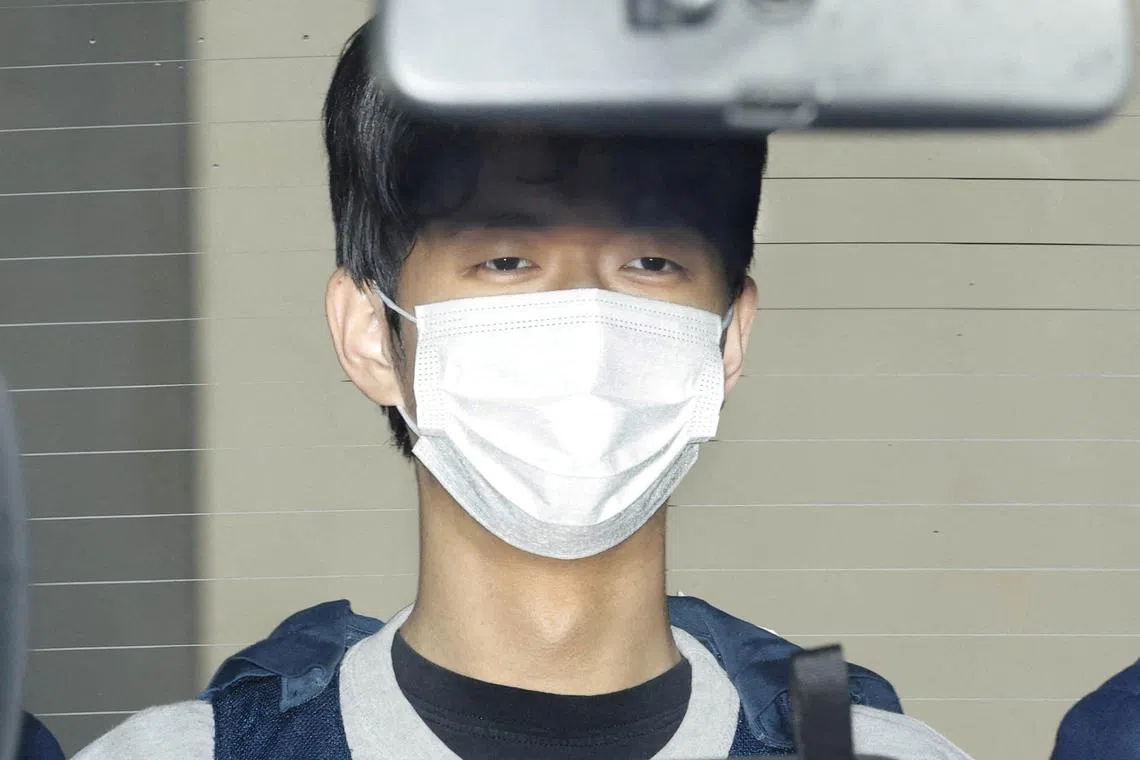Japan PM Kishida’s suspected attacker to undergo psychiatric examination
Sign up now: Get ST's newsletters delivered to your inbox

Ryuji Kimura was arrested in April for allegedly hurling a pipe bomb-like explosive towards Japanese PM Fumio Kishida.
PHOTO: REUTERS
Follow topic:
TOKYO - A man accused of throwing an explosive at Japan’s prime minister in April will undergo a three-month psychiatric examination, a regional court said on Tuesday.
Ryuji Kimura, 24, was arrested in April for allegedly hurling a pipe bomb-like explosive towards Mr Fumio Kishida
Mr Kishida escaped unscathed, but the incident horrified a nation still haunted by the assassination of Japan’s former prime minister Shinzo Abe,
Prosecutors are authorised to detain Kimura until early September for an assessment of his mental state at the time of the attack, a court official, who did not give her name, told AFP.
They are expected to decide whether to indict Kimura based on the evaluation.
The suspect has reportedly remained tight-lipped about his motive for the failed attack on Mr Kishida.
Local media reported that Kimura previously filed a lawsuit
An Osaka High Court spokesman told AFP last month that Kimura had sued the government and his claim was rejected by a lower court.
A ruling on his appeal is expected in May.
The attack put Japan on high alert ahead of the Group of Seven summit in Hiroshima, which wrapped up on Sunday, and reignited a debate over police security for politicians.
In an interview with foreign media including AFP in April, Mr Kishida said the attack served as a sobering reminder of the difficulties in balancing interactions with voters against the safety of politicians. AFP

